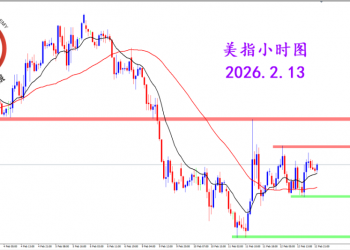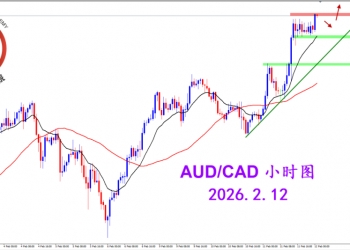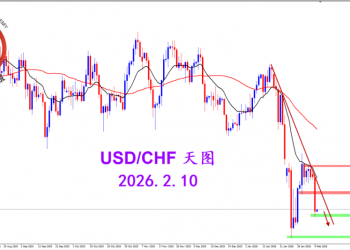翻译重点:
韩国外汇储备继日本、中国和台湾之后居世界第四(2000亿美元)。2月18日,韩国中央银行向议会报告,将外汇储备多元化,增加如以AUD和CAD为名的资产投资。这一举动导致美元大幅下跌。
来源于:
(1)http://www.stockwatch.com.cy/nqc ... d=41153&lang=en
Dollar Declines as Bank of Korea Plans to Diversify Reserves
First Published: 22/02/2005 13:41:53
The dollar fell the most in more than two years against the yen and dropped versus the euro, Korean won and at least 30 other currencies after the Bank of Korea said it plans to diversify its reserves.
South Korea's central bank, which has a total of $200 billion in reserves, said in a Feb. 18 report to a parliamentary committee it will increase investments in assets denominated in currencies such as the Australian and Canadian dollars. The country's reserves are the world's fourth-biggest, behind Japan, China and Taiwan, according to data compiled by Bloomberg.
``The market will now be looking to other central banks and what they will be doing, including the European central banks and Middle Eastern banks,'' said Mansoor Mohi-Uddin, head of currency strategy at UBS AG in London. ``The market has got nervous and has continued selling the dollar.''
The dollar fell to 103.87 yen at 11:15 a.m. in London, from 105.54 late yesterday in Toronto, according to EBS, an electronic foreign-exchange dealing system. It dropped to $1.3216 per euro, from $1.3068. U.S. markets were closed yesterday for a national holiday. UBS forecasts the dollar will fall to a record $1.40 per euro by year-end.
``Support for the dollar is quickly disappearing,'' said Kenichiro Ikezawa, who manages $1 billion in overseas debt at Daiwa SB Investments in Tokyo. ``This Korean story is having quite an impact because it feeds into suspicion that others are also seeking to cut their exposure to the dollar.''
Pimco's Call
The dollar has dropped for the past three straight years against the euro and the yen, in part on concern demand for U.S. assets will fail to match a widening current-account deficit. The gap was a record $164.7 billion in the third quarter, meaning the U.S. must attract $1.8 billion a day to fund the shortfall and support the dollar's value, according to Bloomberg calculations.
``I'd prefer not to own dollars,'' said Andrew Bosomworth, a former European Central Bank economist and a fund manager at Pacific Investment Management Co. in Munich. Pimco manages about $415 billion in assets. ``The list of fundamentals doesn't add up to a stack of positives for the U.S. currency.''
Korean investors, including the central bank, are the fifth- biggest foreign holders of U.S. Treasuries, with $69 billion as of December, the most recent figures available, according to the Treasury Department. Japan, the largest, has $711.8 billion. The Bank of Korea report was given to some legislators on Feb. 18 and reported by Reuters yesterday.
`Still Have Faith'
``The likes of Thailand, Taiwan and smaller, medium-sized central banks may follow suit'' in diversifying their reserves, said Stephen Jen, global head of currency research at Morgan Stanley in London. Japan and China, the two largest holders of Treasuries, probably won't shift out of the dollar, he said. They ``cannot diversify while the dollar is under pressure.''
China has kept its currency pegged to the dollar since 1999. Japan sold a record amount of yen in the first quarter of last year to help stem its advance. The dollar in 2004 fell for the third straight year against the yen and the euro. It is up about 3.6 percent from a record-low $1.3666 per euro on Dec. 30.
``In the long run I still have faith in the U.S. dollar,'' said Jen, who raised his forecasts for the currency on Feb. 10. Jen predicts the dollar will trade at $1.24 per euro and 96 yen at year-end, up from previous estimates of $1.32 and 92 yen.
The Bank of Korea report, distributed to members of the parliament's finance and economy committee in advance of a debate scheduled for Feb. 24, also said the bank will expand investments into assets with lower credit ratings than the South Korean government. The plan must be approved by parliament.
`Sheer Size'
``The sheer size of Korea's reserves makes it unignorable,'' said Tetsu Aikawa, currency sales manager in Tokyo at UFJ Bank Ltd., a unit of Japan's fourth-largest lender. ``That revives the memory in people's minds how badly the dollar was sold when Russia said it was diversifying.'' The U.S. currency may weaken to $1.32 per euro today, he said.
The dollar fell to a then record against the euro on Nov. 23 after Russia's central bank said it may increase the amount of euros in its reserves. The dollar fell as much as half a percent against the euro on Jan. 24, after a survey sponsored by Royal Bank of Scotland Plc showed central banks boosted euro holdings.
Almost 70 percent of the 56 central banks surveyed said they increased exposure to the 12-nation currency, according to the survey conducted by Central Banking Publications Ltd., a London- based publisher, between September and December 2004. Fifty-two percent said they reduced exposure to the dollar.
`Good to Diversify'
U.S. Treasuries were the second-worst performing major government market in the world last year, returning 3.5 percent to investors, according to Merrill Lynch & Co. indexes. Only Japanese bonds, which returned 1.3 percent, did worse among the world's largest government bond markets.
``To have a high proportion in U.S. assets is far from ideal so it's good to diversify,'' said Mark Austin, head of currency strategy at HSBC Holdings Plc in London. HSBC forecasts the dollar will fall to a record $1.40 per euro and to 98 yen, the weakest in a decade, by the end of the year.
``South Korea wants to start picking up higher yields so that includes moves in to the Australian currency and sterling, and they'll be buying government bonds,'' said Austin.
The yen's advance began earlier today on speculation Japan's economy will recover from its fourth recession since 1991. The U.S. currency also weakened versus the euro.
Traders may renew bets on the yen after it retreated 3 percent from a five-year high of 101.69 on Jan. 17, said Sabrina Jacobs, a currency strategist at Dresdner Kleinwort Wasserstein. Japan's trade surplus widened for a second month in January, a government report tomorrow may show.
Japanese Economy
``Investors are increasingly realizing that the second-half recession in 2004 was the low point in Japan and that it's most likely getting better,'' said Singapore-based Jacobs. ``That's helping the yen.''
Japan's trade surplus probably grew to 508.5 billion yen ($4.84 billion) from a year earlier, according to the median forecast of 24 economists surveyed by Bloomberg.
Finance Minister Sadakazu Tanigaki said on Feb. 20 Japan's economy will ``improve in the latter half of this year,'' after it contracted at an annualized 0.5 percent pace in the fourth quarter. The economy contracted for three straight quarters.
Japan's Cabinet office kept its assessment that the economy is recovering, in its February report released today. The government removed currency moves as a risk for the economic outlook in its report. A stronger currency may slow export growth by making Japanese goods more expensive abroad.
Heineken NV, the world's third-largest brewer, said today profit may fall for a second year, in part because the dollar's drop against the euro will crimp U.S. revenue. The firm may shed 50 million euros in net income this year because of currency effects, Chief Financial Officer Rene Hooft Graafland said on a conference call today
(2)http://www.boston.com/business/a ... y_against_euro_yen/
Dollar sinks sharply against euro, yen
February 22, 2005
BERLIN -- The dollar dropped sharply Tuesday against other major currencies, lifting the euro above $1.32 in developments driven by Asian markets.
The 12-nation European currency bought $1.3220 by late afternoon in Europe, up from about $1.3060 late Monday.
The dollar also slid against the Japanese yen, trading at 104.04 yen, down from 105.56 Monday. The British pound gained to $1.9066 from $1.8964.
Weighing on the dollar was a recent report by South Korea's national bank that it plans to diversify its foreign exchange reserves, currently worth about $200 billion, away from dollars and to include more currencies, analysts said.
"Markets have been worried for a long time about this diversification of reserves by Asian central banks," said Lee Ferridge, currency strategist at Rabobank in London.
European markets also were reacting to the dollar's retreat against the yen in Asia after news that communist North Korea had showed a conditional willingness to return to the six-party talks, a forum to resolve the ongoing crisis over the country's nuclear programs.
With financial markets still worried about the U.S. budget and trade deficits despite recent upbeat data on the U.S. economy, President Bush's visit to Europe appeared to be having little impact on the markets.
"We're in a phase of dollar weakening again," said Commerzbank currency analyst Carsten Fritsch. "Those deficit problems are not really solved and no near-term solution appears in sight."
"In the market's current mood, I can't imagine that Bush can rally a change of opinion" about the dollar, he said. |
 2026.2.13 图文交易计划:美指持续震荡 等1523 人气#黄金外汇论坛
2026.2.13 图文交易计划:美指持续震荡 等1523 人气#黄金外汇论坛 2026.2.12 图文交易计划:多头持续挺进 澳1451 人气#黄金外汇论坛
2026.2.12 图文交易计划:多头持续挺进 澳1451 人气#黄金外汇论坛 2026.2.11 图文交易计划:磅加坚决阴线 适1715 人气#黄金外汇论坛
2026.2.11 图文交易计划:磅加坚决阴线 适1715 人气#黄金外汇论坛 2026.2.10 图文交易计划:美瑞大幅下跌 等1589 人气#黄金外汇论坛
2026.2.10 图文交易计划:美瑞大幅下跌 等1589 人气#黄金外汇论坛